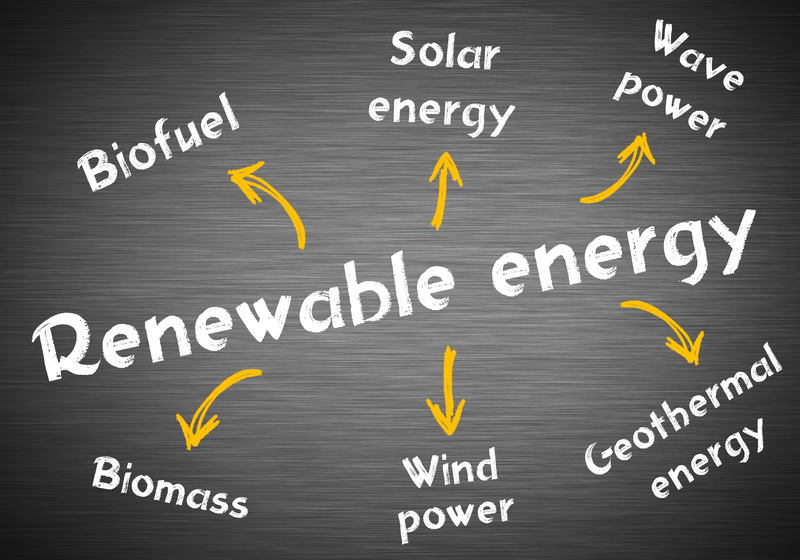Moneywise Tips for Getting Rid of Bulky Household Waste
Getting rid of bulky household waste can be a daunting, expensive, and time-consuming process if you're not sure where to start. Whether it's an old sofa, broken appliances, mattresses, or piles of unused furniture, large household items often present a challenge when it comes to disposal. However, there are cost-effective, sustainable, and simple solutions for every home. In this thorough guide, we'll share the most effective moneywise tips for getting rid of bulky household waste, so you can clear your clutter while saving cash and helping the environment.

Understanding Bulky Household Waste
Before jumping to disposal methods, it's important to define what counts as bulky household waste. Typically, this category includes:
- Old furniture (couches, beds, wardrobes, tables, chairs)
- Large appliances (fridges, washing machines, stoves)
- Mattresses and box springs
- Rugs and large carpets
- Yard equipment and tools
- Construction materials (doors, wood panels, drywall)
Properly getting rid of these items requires special consideration since most regular waste collection services won't accept them in their usual pickups. Let's explore how to approach bulk household waste disposal in a moneywise and eco-friendly way.
Assessing the Condition: Repair, Reuse, or Repurpose?
Not all bulky waste needs to go straight to the landfill. The most *moneywise* approach is to evaluate whether the item can be repaired, reused, or repurposed.
Repair Before Replacing
- Check if furniture or appliances can be fixed. Sometimes a loose screw, a new handle, or a replaced hinge can give an item new life for minimal cost.
- Many towns have local repair cafes or community fix-it events--these are great opportunities to get help for free or at a low price.
- Repair not only saves money but also reduces environmental waste.
Repurpose and Upcycle
- Old furniture can often be upcycled--for example, repurposing a ladder into a bookshelf or turning dresser drawers into planters.
- DIY upcycling projects are cost-effective and add character to your home or garden.
- There are countless online resources and tutorials for repurposing bulky items.
Tip: If you enjoy DIY, upcycling projects not only save disposal costs but may lead to valuable new creations for your home, or even items to sell for extra cash!
Moneywise Disposal Options For Bulky Household Waste
1. Donate to Charity or Local Organizations
- If your item is still in usable condition, donation is an excellent, moneywise option for getting rid of large household waste without cost.
- Many charities such as The Salvation Army, Goodwill, or Habitat for Humanity ReStores will accept large furniture, appliances, or equipment (sometimes even offering free pickup).
- Schools, shelters, and local community centers may need items like couches, desks, or beds.
- Be sure to contact the organization first to check donation guidelines and pick-up arrangements.
2. Sell or Give Away Online
- Websites like Facebook Marketplace, Craigslist, and Nextdoor are popular platforms to sell or giveaway bulky household items locally.
- You can set items as "free for curbside pickup," which not only saves you time and money but also ensures someone in your community benefits from your unused items.
- For items in good condition, you may even make back some money--making this a truly moneywise option.
- Always ensure personal safety when arranging pickups--meet in public or busy areas and never share unnecessary personal information.
3. Utilize Local Council Collections
- Many municipalities provide bulk waste collection services--sometimes free, other times for a modest fee.
- Check your town or city website for schedules, guidelines on what they collect, and booking details.
- This service is particularly handy for items that are too large for regular trash or recycling bins.
- Plan ahead: spaces may be limited and collection dates infrequent, so book in advance where possible.
4. Visit a Recycling Center or Transfer Station
- Recycling centers often accept certain types of bulky household waste, especially metals, electronics, and appliances.
- Some centers have designated days for free or low-cost drop-offs for residents--watch out for these to save on disposal fees.
- Properly separated metals, cardboard, and plastics may sometimes even earn you a small recycling rebate!
- Always check in advance which materials your local center will accept and what their charges are (if any).
5. Renting a Skip or Dumpster
- If you have a substantial amount of bulky household waste, periodically renting a small skip or dumpster could be cost-effective when shared among neighbors or during a large clean-out.
- Skip rental companies often offer flat rates, but check for hidden fees or weight limits.
- Coordinate with neighbors or friends to split the cost--this is a great moneywise tip for reducing per-person expenses.
6. Hire a Professional Junk Removal Service (With Caution)
- When other routes aren't possible or items are hazardous, junk removal services can be a fast and hassle-free solution.
- To keep costs down, compare quotes from local services, read reviews, and confirm exactly which items they'll remove as part of the basic price.
- Ask about recycling and disposal practices--opt for companies committed to environmentally-friendly operations.
7. Host a Community Swap or Give-Away Day
- Invite neighbors to a local swap event--these can be great ways to give away unwanted bulky items while picking up something you might need for free.
- Contact your community center or homeowners' association to organize a curbside exchange event.
- This fosters community spirit and minimizes waste going to landfill--a winning moneywise solution!
Practical Steps for Moneywise Bulky Waste Management
Plan Ahead
Proper planning is crucial for saving both money and effort when discarding bulky household items:
- Make a list of all items you wish to dispose of and assess their condition first.
- Photograph items if you plan to sell or donate--they're more likely to be accepted or picked up if you provide clear pictures.
- Group similar items together (for example, all electronics or all wooden furniture) to streamline transport or disposal.
Minimize Transportation Costs
- If you're dropping items at a recycling center, plan your route and combine trips to save fuel.
- Borrow or share vehicles with friends or community members on the same disposal mission.
Disassemble Items for Easier Handling
- Disassemble furniture (remove legs, separate cushions, etc.) to take up less space in your vehicle or skip.
- This also allows for easier sorting of recyclable materials.
Avoid Fines or Penalties
- Never dump bulky waste illegally--this can result in severe fines, damage to the environment, and potentially costly legal issues.
- Follow local regulations for disposal to avoid penalties and ensure your items are managed responsibly.
Eco-Friendly and Moneywise: Combining the Two
Adopting a moneywise approach to bulky household waste disposal doesn't mean sacrificing environmental values. In fact, many of the tips above avoid landfill usage and promote a circle of reuse.
- Donating, selling, and swapping ensure that items are given a second life, reducing overall consumption and waste.
- Recycling large household waste diverts valuable materials from landfills and reduces the need for raw resources.
- Repairing and repurposing are both eco-friendly and save money in the long run.
Whenever possible, prioritize routes that keep your items in use and out of the dump.
Bulky Waste Items That Require Special Handling
Some types of bulky household waste require special attention due to potential hazards or regulatory requirements:
- Appliances with refrigerants (fridges, freezers, air-conditioners): These must be handled by certified professionals due to environmental laws.
- Mattresses: Some centers charge extra or have specific drop-off points due to their materials.
- Electronics: E-waste often contains hazardous chemicals; many cities have dedicated e-waste collection days.
- Construction debris and paint: Check for special disposal sites--you may not be able to include these with regular household waste.

Preventing Future Bulky Household Waste
The best long-term, cost-saving strategy is to prevent the buildup of bulky waste in the first place:
- Buy quality, durable items that will last longer and require less frequent replacement.
- Opt for modular, easy-to-repair designs when shopping for furniture or appliances.
- Consider renting infrequently used equipment and furniture to avoid unnecessary purchases.
- Follow a "one-in, one-out" policy--every time you bring something new home, consider removing an old item.
Conclusion: Be Smart, Be Moneywise
Dealing with bulky household waste doesn't have to be expensive or stressful. By following these moneywise tips for getting rid of bulky household waste, you'll save money, support your community, and help protect the environment. Remember, the golden rule is to seek reuse, repair, and recycling first, and only use landfill as a last resort.
With a bit of planning and creativity, clearing out your clutter can be rewarding and even profitable. Share your own tips with neighbors, participate in local swap events, and work together to make your community a cleaner, greener, and more sustainable place to live.
If you found these tips helpful, don't forget to share this article and help others make moneywise, eco-friendly decisions about bulky household waste disposal!
